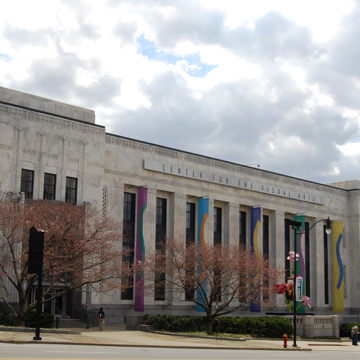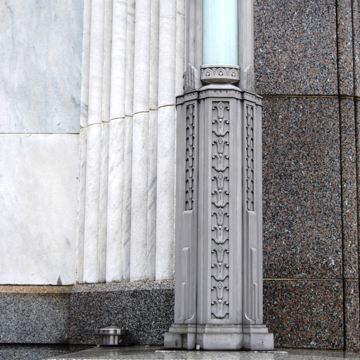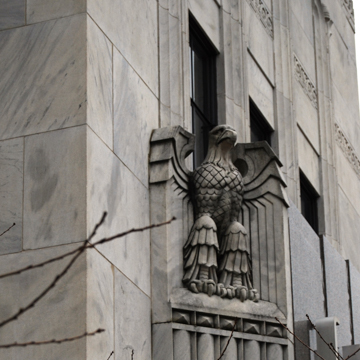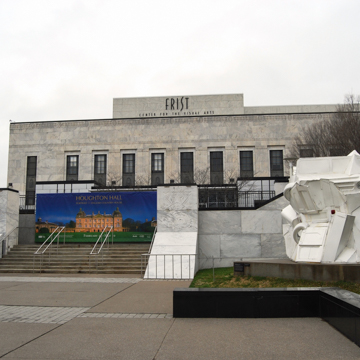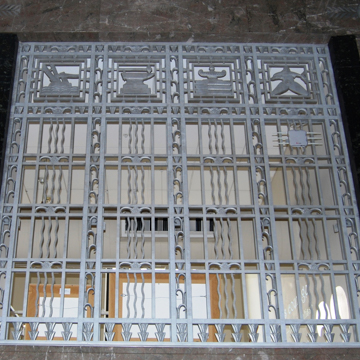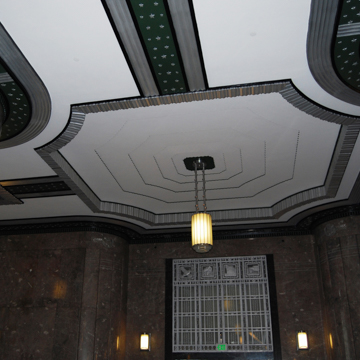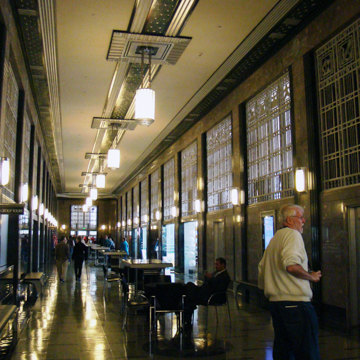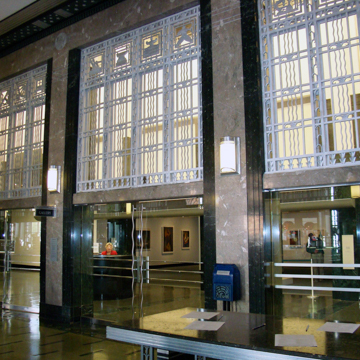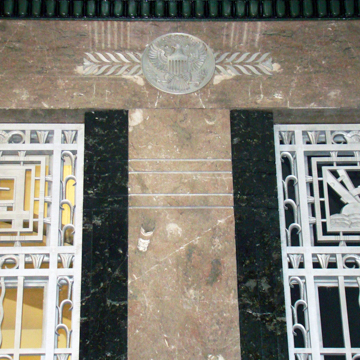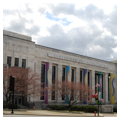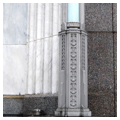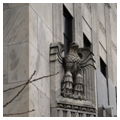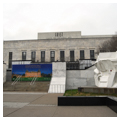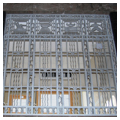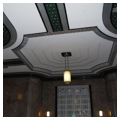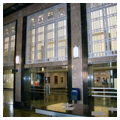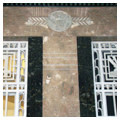You are here
Frist Art Museum
Financed by the Works Progress Administration (WPA), Nashville’s post office was completed in 1934. The New Deal building was designed by the local firm of Marr and Holman in the stripped classical style typical of federally funded buildings of the early 1930s. Like the post offices in Knoxville and Chattanooga, built around the same time and with similar funding, Nashville’s post office reflects the design preferences of the Office of the Supervising Architect of the U.S. Treasury.
Nashville’s main post office had been located in the federal customs house on Broadway since the 1870s. The city’s postmaster and congressmen lobbied for a new post office building and in the 1930s federal funds were appropriated. When construction began in 1933, over 1,000 people applied for employment. Upon its opening in November 1934, an estimated 50,000 people came to view what was considered a very modern and efficient post office.
The two-story granite and marble building reveals many of the stylized motifs prevalent in WPA buildings, such as eagles above the entry and geometric grillwork on the interior depicting symbols of industry and commerce. The large public lobby has cast-aluminum grillwork and doors with stylized designs and multi-colored marble floors and walls. Most of the main level was for use by postal workers; offices for postal inspectors and accounting staff were located on the second floor; the basement contained work and utility spaces.
In 1986 a new main post office built outside of the city center eliminated the need for the old post office. The Metropolitan Government of Nashville and Davidson County, the U.S. Postal Service, and the Frist Foundation of Nashville collaborated to convert the building into an art museum. Today the Frist Center for the Visual Arts is host to major exhibitions from around the world.
References
Creighton, Wilbur F. A Paragraph from Nashville’s History: The Foster-Creighton Story. n.p., 1974.
From Post Office to Art Center: A Nashville Landmark in Transition. Undated brochure from the Frist Center for the Visual Arts.
Orr, Frank, Elbridge White, and Charles A. Warterfield, eds. Notable Nashville Architecture 1930–1980. Dallas: Taylor Publishing Company, 1989.
Thomason, Philip, “United States Post Office,” Davidson County, Tennessee. National Register of Historic Places Nomination Form, 1984. U.S. Department of the Interior, Washington, D.C.
Writing Credits
If SAH Archipedia has been useful to you, please consider supporting it.
SAH Archipedia tells the story of the United States through its buildings, landscapes, and cities. This freely available resource empowers the public with authoritative knowledge that deepens their understanding and appreciation of the built environment. But the Society of Architectural Historians, which created SAH Archipedia with University of Virginia Press, needs your support to maintain the high-caliber research, writing, photography, cartography, editing, design, and programming that make SAH Archipedia a trusted online resource available to all who value the history of place, heritage tourism, and learning.










